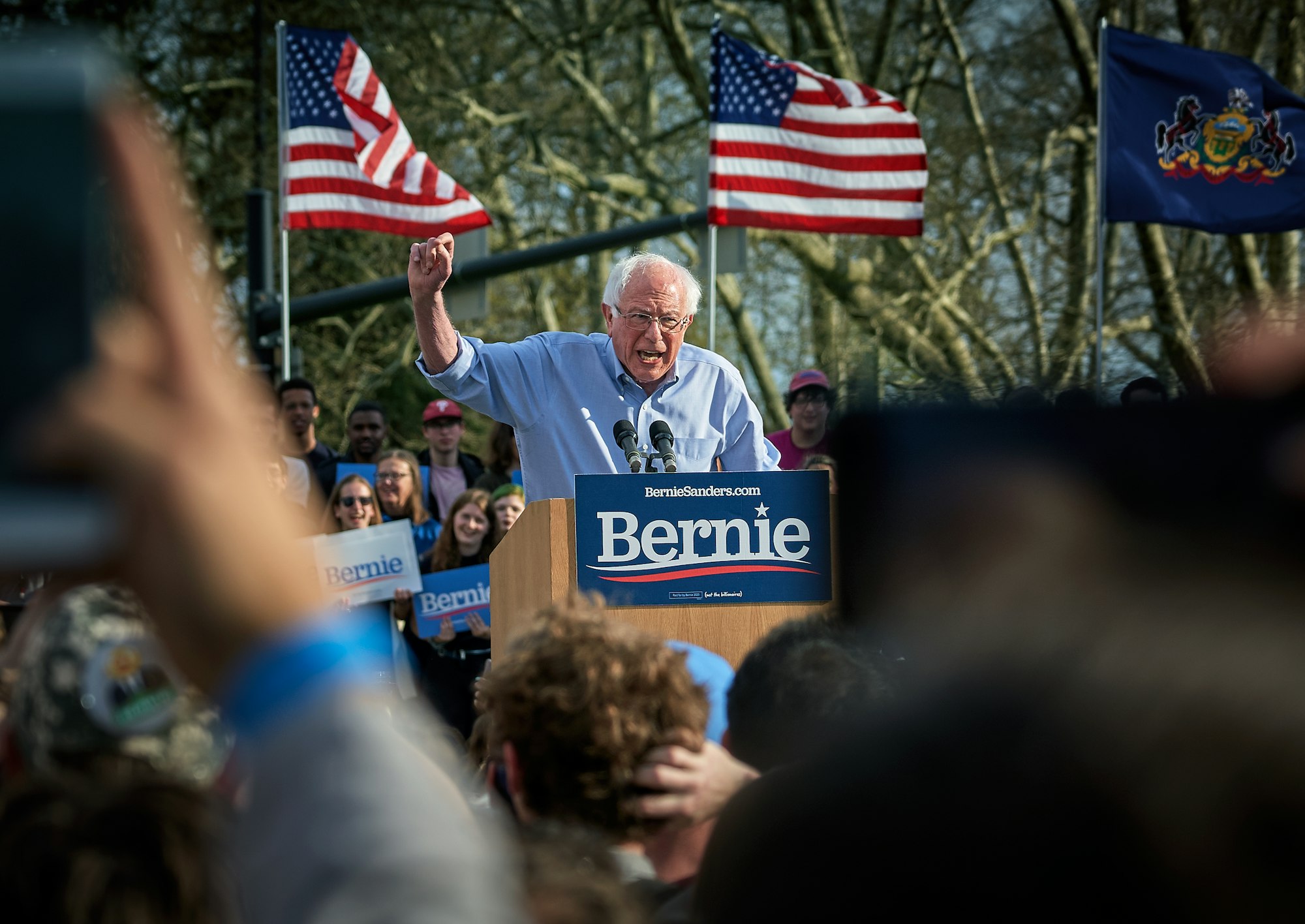Two for the Show in West Virginia

West Virginia has had it up to here with both political parties. On the Democratic side, the President has historically-low approval ratings. On the Republican side, West Virginia has rejected a train of establishment candidates in favor of Donald Trump. Research suggests that West Virginians are more pessimistic about the economy and more concerned with family finances that just about any other state in the union.
Record levels of unhappiness with the political establishment can mean only one thing for the Presidential race in West Virginia: Whatever the rest of the country may do, West Virginians will look to Donald Trump and Bernie Sanders as the candidates who promise a major change of direction for the country. Establishment politics simply won’t get it done this year in West Virginia.
Let’s start on the Republican side. I am not a Trump supporter myself, as you might expect, but as Chris Rock put it twenty years ago, “I understand.” The long history of establishment Republicans who simply don’t deliver what they promise created the allure of Trump. Voters, particularly here in West Virginia, who lean Republican have woken up to how the GOP campaigns on one set of issues and delivers something else, time and time again.
Candidates like Jeb Bush and Marco Rubio represent the same old same old Republican plan – tell social conservatives you’re the “moral party,” blue-collar people you’re the “opportunity party,” and above all tell them you’re against “Nancy Pelosi and Barack Obama.” It’s been a winning formula at some times and in some places.
But then what do these establishment Republicans deliver for their voters? Amnesty and open-borders that kill middle class jobs. Huge tax cuts for the wealthy that never “trickle down.” And Republicans have been promising to overturn Roe v. Wade for over forty years, but never seem to get around to actually doing it. Voting for the Republican establishment always gets you a classic bait-and-switch. The campaign is nice, but what they do when they get in office leaves folks thinking: “that’s not what I voted for.”
Trump is different. Trump isn’t funded by Wall Street billionaires and doesn’t plan to cut their taxes at all. He isn’t beholden to the unfair free trade policies that enrich big corporations while they send our factory jobs to Mexico and China. He agrees health care should be a guaranteed right (at least, he says so now). The Republican establishment hates him for all of this, but they can’t stop him, and don’t control him. Right-leaning voters can see that and they like it.
On the Democratic side, Bernie Sanders has generated tremendous enthusiasm in states that are like West Virginia demographically. His message that money has taken over our politics, that disastrous trade deals have left blue-collar families out in the cold, and that our children need to be able to get a college education without taking on crippling debt, has energized millions of Americans. But Sanders has also found himself in some trouble with his own side’s “political establishment.”
There have been accusations (overblown, I think, but out there) that the Democratic Party wanted to provide a “coronation” to former Secretary of State Hillary Clinton. If that was ever going to happen, it’s on hold now that Sanders won a resounding, 20-point victory in the New Hampshire primary and narrow defeats in Nevada and Iowa. While I personally am an exception, “superdelegates” – party leaders with a convention vote in the nomination race – have backed Hillary Clinton by a 20-1 margin.
Of particular interest in West Virginia, the most recent Democratic debate featured Secretary Clinton pointing out that Sanders did not agree with President Obama on several issues, using that as a criticism of Sanders. That may be a generally good national strategy, but here in West Virginia, the candidate who differs with President Obama on some things probably has a leg up. There is overwhelming recognition here, of course, that the President’s policies have not been favorable to West Virginia’s economy, and the rest of the country has yet to make that up to us.
Of course, there are major differences between Sanders and Trump. Donald Trump has made a habit of lurching from position to position on many issues. He’s said some truly vicious, racist, and sexist things, from mocking John McCain’s wartime service to our country, to insulting entire nationalities and ethnic groups, all the way to a series of profane remarks about women’s bodily functions. He’s not what you would call “qualified” for the job.
Bernie Sanders, by contrast, has been saying the same things about protecting a right to health care and education for everyone, protecting good wages and American jobs, and ending Wall Street’s malign influence on our politics for as long as he’s been around. While Trump is known for being short on details (“we’re going to do great things!”), Sanders has been around long enough to actually lay out plans to rebuild and grow the middle class in this country. There is a reason he is the only candidate in either party with a net-favorable rating from the public at large.
Now I should mention that West Virginia has a native son in the race, Paul Farrell from Huntington, but it’ll be Farrell against two more nationally organized candidates who have very different demeanors, and very different plans, but who each speak to the mood in West Virginia. Neither party’s “establishment” has served West Virginia well, as far as people here are concerned. Any candidate who comes into West Virginia representing politics as usual – Democratic or Republican – won’t be coming out of here a winner in 2016.

